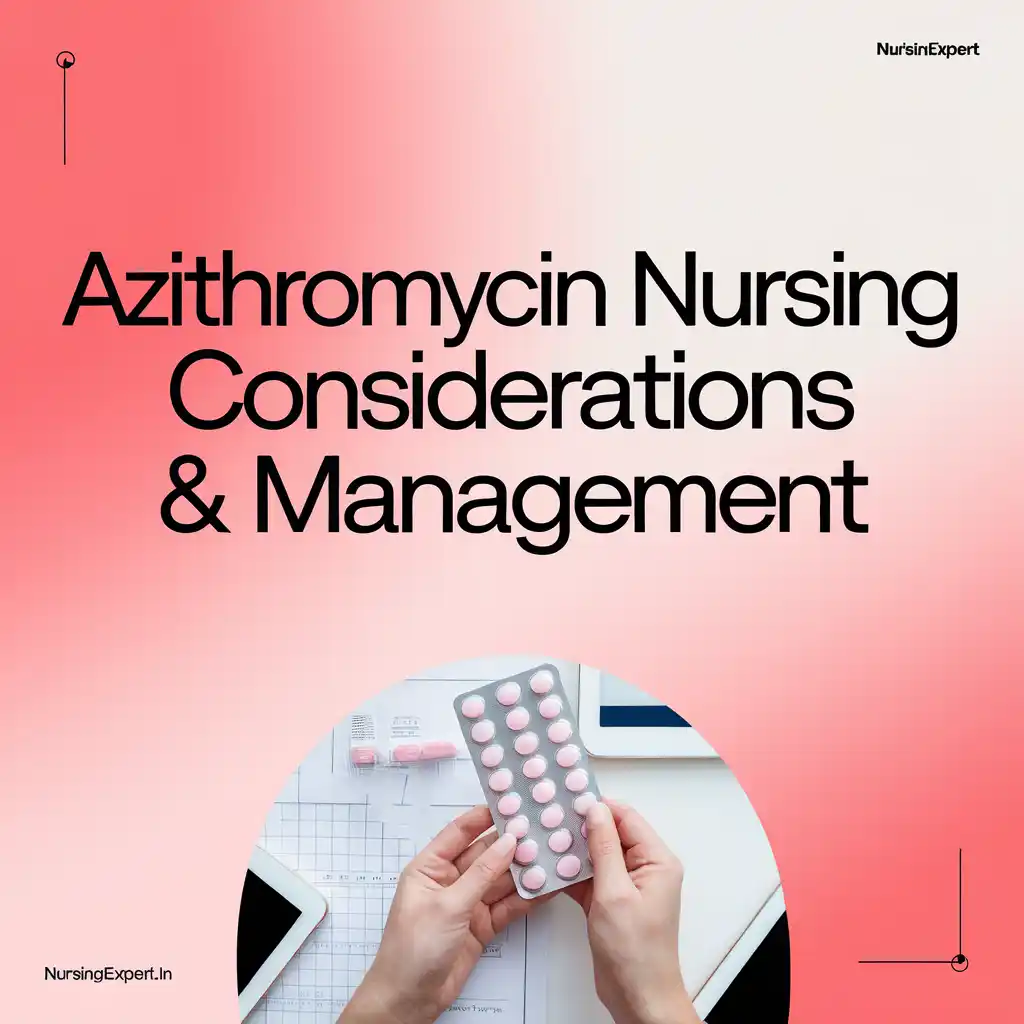Azithromycin Nursing Considerations & Management
Azithromycin is a macrolide antibiotic widely used to treat various bacterial infections, such as respiratory tract infections, skin infections, and sexually transmitted infections. Its long half-life and once-daily dosing enhance patient compliance, making it a valuable tool in outpatient settings. Nurses play a critical role in its administration, monitoring, and patient education to ensure safe […]
Azithromycin Nursing Considerations & Management Read Post »










